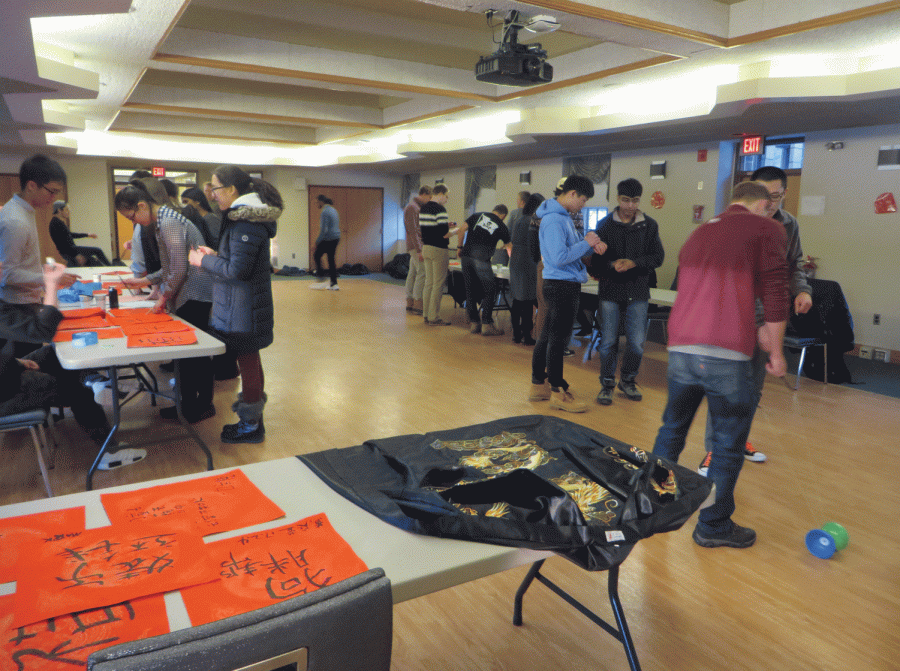Colgate’s Annual Chinese New Year Gala Brings Cultures Together
Colgate’s Chinese Interest Association held their annual Chinese New Year Gala in the Hall of Presidents this past Saturday night. The first night of the Chinese New year was on January 28, marking the transition from the year of the Monkey to the year of the Rooster. This is based on the twelve-year cycle of the Chinese Zodiac. The date of the Chinese New Year is based on a lunar calendar, so the date of its festivals vary from year to year. The celebration of the Chinese New Year is centuries old, and traditional festivities change deities and ancestors. It is typically experienced with family and friends. Traditional Chinese clothing may be worn, firecrackers are set off and gifts of money are given to others in red envelopes. It is a time to be with loved ones and to celebrate.
In the three years since the first gala, the organization made some changes to the event. This year, they added a game round before the performance and banquet. In order to get tickets to the performance and banquet, participants needed to pass four levels of traditional Chinese games and activities. These games are typically played with friends and family during traditional celebrations, and the Chinese Interest Association wanted to share this part of their culture with the Colgate
student body.
The first round entailed a game called jianzi. This game entailed kicking a
feathered game piece into the air several times without letting it touch the ground.
“This game was really fun but turned out to be surprisingly difficult. It required a lot of focus and coordination. It kind of reminded me of hacky sack,” sophomore Tess Nogles said.
Once participants succeeded at this round, they moved on to getting temporary tattoos of Chinese symbols and words. Afterwards, participants were taught how to do traditional Chinese calligraphy. Words such as “peace” and “happiness” were painted on vibrant sheets of red paper, which people were allowed to take home with them. This calligraphy is traditionally done with family members on the Chinese New Year and then hung on the doors of people’s homes. The last game round was played with Chinese yo-yos. Participants attempted to recreate the tricks and moves that were shown to them. Once people made it through all the rounds they were given tickets for the banquet and the performance.
The Chinese Interest Organization brought in authentic Chinese food from a
restaurant in Syracuse to serve at the banquet. The food was free to everyone who came, and its reception was very successful. The performance was also extremely well-received by a massive audience. Traditional Chinese songs, dances and other talented acts were performed on the main stage in the Hall of Presidents (HOP).
“I was kind of star struck by the Chinese yo-yo act because of all the tricks the performer did. He seemed to really love how the audience members were on the edge of their seats because they thought he would drop the yo-yo,” sophomore Enrique Nunez said.
Overall, this year’s gala was a huge success, and the addition of the traditional Chinese games was a hit with many students.







